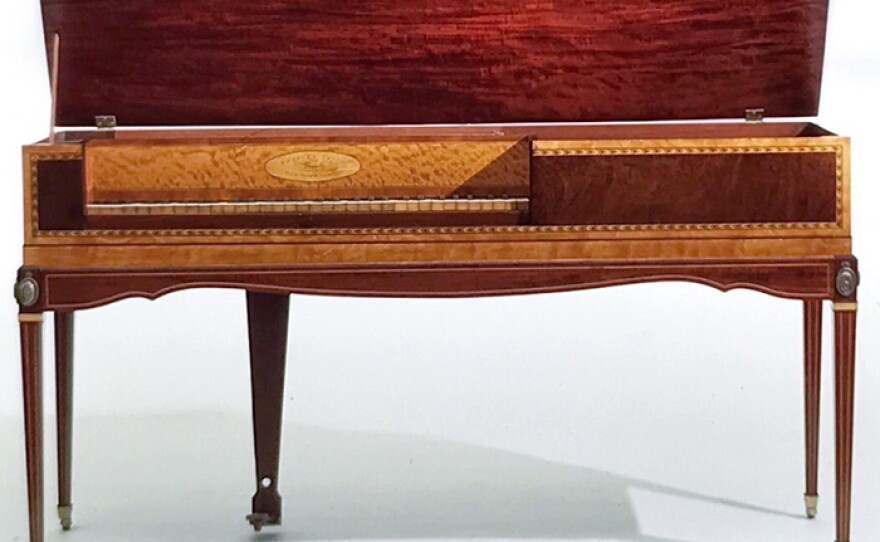Last month, Delaware Public Media began highlighting objects of the month from the Delaware Historical Society’s collection.
This month, Delaware Historical Society Associate Curator BrentonGromm dug into the backstory behind two historic pianos from the late 1700s - early 1800s.
Gromm discovered the two simple, square pianos - popular in the late 18th century because of their small size - were made by English emigre Charles Trute.
Trute settled in the Wilmington area after working with renowned piano makers in London and then brief stint in Jamaica.
“He was in the Soho section of London, sort of sandwiched in with some of the really famous piano makers and cabinet makers in the 1780s and 1790s in London," Gromm said.
Gromm’s not sure if Trute made pianos while in Jamaica, noting it would have been extremely difficult.
“The climate in Jamaica – very much a tropical climate – was not good for pianos, and at that time it wasn’t good for people either," Gromm said. "The yellow fever was a major plague throughout the Caribbean.”
Gromm says Trute also briefly set up shop in Philly before moving to Wilmington.
He and Trute Wiedberg – a colleague and likely relative - purchased land in the Brandywine Hundred and a few years later acquired the nearby Swan Inn.
“It wasn’t entirely uncommon, for craftsmen, actually, to have a kind of income that was more stable than just crafting and selling particular kind of ware," Gromm said.
Gromm called the pair’s purchase of land a smart investment for the time as the inn became a favorite dining spot along the road from Wilmington to Philadelphia.
Trute - who signed his name in Latin on the delicate pianos - died in Wilmington in 1809.









